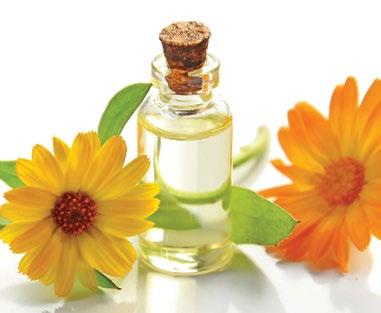
3 minute read
Keeping Skin Healthy in Colorado
Keeping Skin Healthy in Colorado by Cindy Jones, Ph.D.
Keeping your skin healthy and glowing in Colorado can be a challenge. At elevations between 5,000 – 6,000 feet above sea level along the Front Range, we are much closer to the sun than people in most parts of the country. This climate leads to skin damage from the sun resulting in photo-aging: an acceleration of the normal aging process with sun exposure. Wearing sunscreen can help prevent skin cancer, but it does not prevent other types of skin damage caused by the outdoors.
Advertisement
UV light causes free radical formation in the skin. These free radicals will then cause skin damage, such as:
• Breakdown of collagen and elastin fibers found in the lower layer of the skin (dermis). Because the dermis gives support to the skin, this results in deep wrinkle formation, loss of tissue elasticity, and loss of skin tone.
• Inflammation and reddening of the skin.
• Hyperpigmentation or spotty discoloration of the skin that occurs in patches.
• Disarray of elastin fibers in the skin matrix, resulting in a yellowed, bumpy, thickened, and dry appearance.
• Formation of small, visibly dilated blood vessels around the nose and cheeks.
• Dry skin from damage to the skin barrier system.
Oxidative stress in the skin caused by UV light will lead to the breakdown of macromolecules. Collagen is a macromolecule of particular concern. Collagen gives skin support and structure. When it breaks down, wrinkles occur. This happens normally with age but accelerates with UV light.
But let's talk about how we can treat and prevent some of this skin damage and keep our skin as healthy as possible. Here are some ingredients that can slow the breakdown of collagen and photoaging.
Green Tea. Green tea is rich in antioxidants and anti-inflammatory agents. It can help prevent and repair skin damage caused by the sun, particularly by preventing collagen fibers' breakdown in the connective tissue. It does this by inhibiting the oxidation of proteins and inhibiting matrix metalloproteins (MMP) that break down collagen. Green tea can also help control acne and rosacea, as well as other conditions that lead to aged-looking skin.
Herb Extracts. In general, herbs provide a multitude of complex antioxidants that can counter the effects of both sun and pollution. I particularly like Calendula officinalis. Its flowers have a beautiful orange color due to the vitamin A-related carotenoids in the flower. Vitamin A can stimulate skin cells and improve cell turnover, bringing fresher cells to the surface. In medical studies, Calendula has been shown to promote wound healing, stimulate collagen production, and brighten the skin by reducing melanin.
Other herbs that are great for the skin include parsley, mint, fennel, hops, and lavender.
Vitamin C. Vitamin C is a potent antioxidant for the skin and can help prevent the oxidation of macromolecules. But importantly, it is a necessary cofactor the body needs to make collagen in the skin. This means it is absolutely necessary for vitamin C; there can be no collagen without it. Vitamin C also helps brighten the skin by inhibiting melanin production.
Peptides. "Peptide" is a general term referring to a string of amino acids, but several are used in cosmetics as active ingredients. One peptide in particular that is used in cosmetic formulating is called tripeptide-5. Tripeptide-5 is an ingredient produced by green chemistry. Clinical studies have shown that it can boost collagen levels in the skin and thus reduce wrinkles.
Dry skin can develop into sensitive skin. Sensitive skin can develop dermatitis due to a compromised barrier function. Once this happens, your skin loses more moisture to the environment, and you are at greater risk of environmental toxins entering the skin. Keeping the skin well moisturized with an antioxidant-rich cream is the first step to keeping skin healthy and glowing in Colorado.
The most serious effect of UV light is mutations to the DNA that lead to cancer. Please see your physician for any suspicious-looking spots on the skin such as moles, birthmarks, or other marks that are unusual in color, size, shape, or texture.
Dr. Jones is a biochemist and herbalist. She owns Colorado Aromatics Skincare, where she formulates cosmetic products. You can visit them at coloradoaromatics.com or visit their store at 340 Lashley St., Longmont










